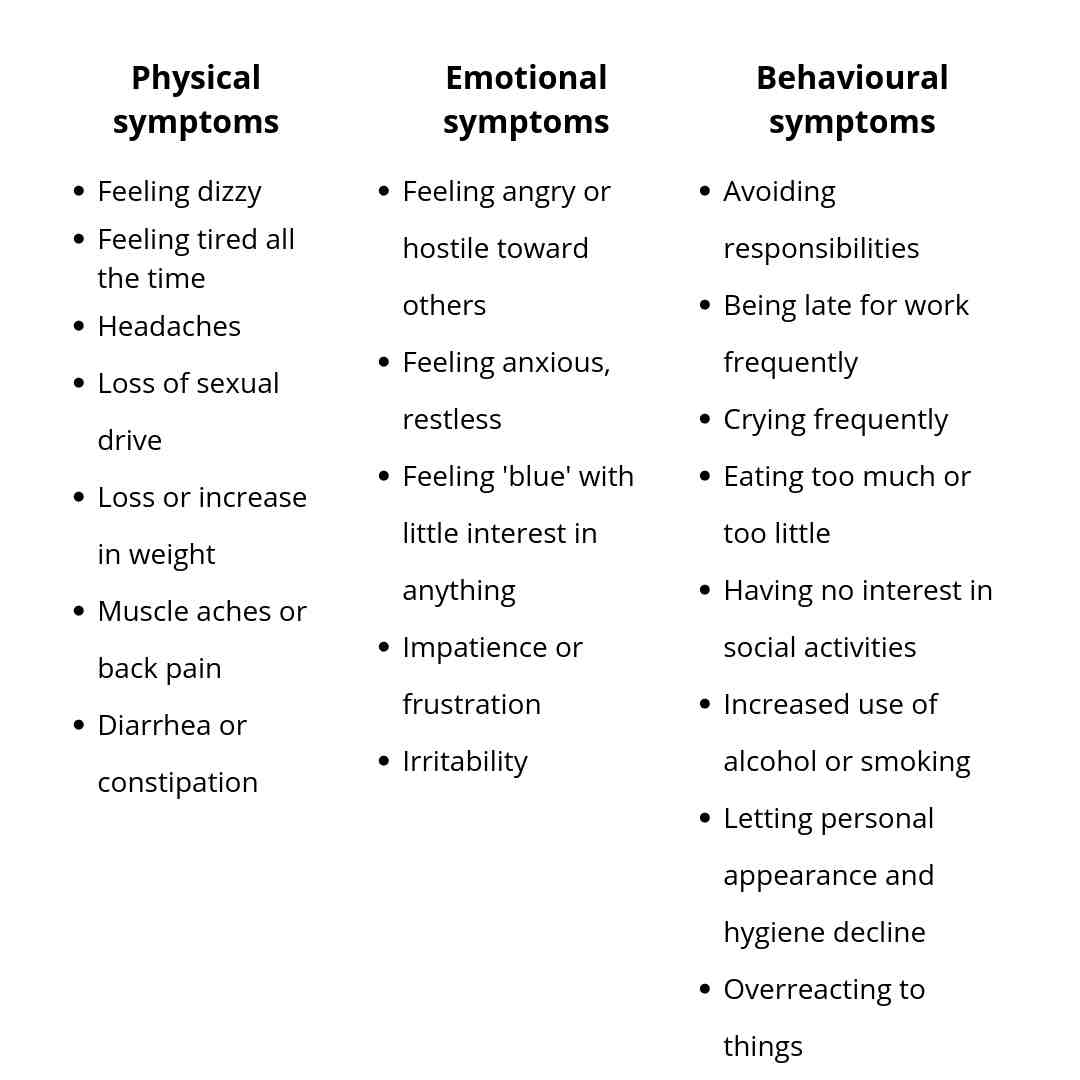
[Adapted from the Resource Guide for Volunteer Family Guides]
Most people do not know how unrelieved stress affects them. The first step in managing stress is to recognize how your body reacts to it. Once you recognize this reaction, you can begin to use self-care techniques to relieve the stress.
Many of the common symptoms of unrelieved stress are listed below. Which ones apply to you?

Identifying stress triggers
Once you have identified how your body reacts to stress, you need to identify what sets off this response. The “what” are called triggers.
Think about what causes you to feel stress. Your unique journey brings many triggers that cause stress such as:
- Anniversaries, birthdays, weddings and holidays, and the time leading up to them
- Preoccupation with your own grief and loss
- Feelings of inadequate time to do all the things you need to do
Coping with triggers and stress
When you become aware of the triggers of your stress, you can begin to manage them more effectively. There are basically two ways to cope with these triggers:
- You can act on things that you have control over, or
- You can recognize or accept that these triggers will always be part of your journey and cannot be changed.
What works best depends on your coping style. People use three main coping styles in response to unrelieved stress:
- Task orientation – taking action to deal directly with the situation
- Emotion orientation – dealing with your feelings and finding social supports, and
- Distraction – using activities or work to take your mind off the situation.
How would you describe your coping style? It may be a combination of all three styles. If your style works for you, continue to use and develop it. But if your method is not helping, stop using it and begin to develop coping skills that will be more beneficial. If necessary, ask for professional help.
- The State of Safety in Canada, 2024 - May 23, 2024
- Yes, you are making a difference. Thank you so much. - May 16, 2024
- Meet one of the families you’ll help through Steps for Life - February 1, 2024

 Find Support
Find Support Donate
Donate